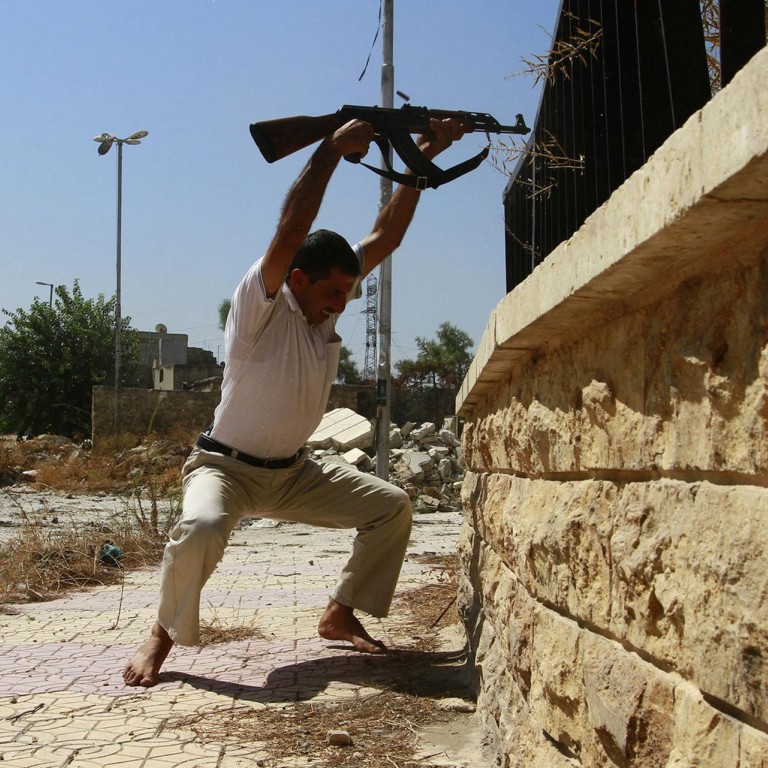
Chemical attack in Syria was a war crime, says UN leader Ban Ki-moon
UN leader says report confirms use of chemical weapons against civilians as Turkey shoots down Syrian helicopter in its airspace
UN leader Ban Ki-moon yesterday told the UN Security Council that the use of chemical weapons in Syria was a "war crime" and demanded the threat of sanctions to back a plan to destroy the arms. This came as Turkey said it had downed a Syrian military helicopter, accusing it of violating its airspace.
Turkish Deputy Prime Minister Bulent Arinc said a Syrian MI-17 helicopter was detected two kilometres inside Turkish airspace and had been warned repeatedly before being shot down. He said there was no information about the fate of its crew because the helicopter fell on Syrian soil.
Ban made the comments in a closed meeting of the 15-nation Security Council at which he told how doctors found people dying in the street after a sarin gas attack near Damascus on August 21, diplomats at the meeting said.
The US, which has threatened a military strike over the chemical arms, estimates that 1,400 people died in the attack.
Ban told the meeting that UN investigators had "now confirmed, unequivocally and objectively that chemical weapons have been used in Syria".
"This is a war crime. I trust all can join me in condemning this despicable crime," Ban told the council, which is divided between supporters and opponents of tough international action against President Bashar al-Assad's regime.
Ban said weather conditions on the morning of the attack "were conducive to maximising the potential impact".
"The downward movement of air would have allowed the gas to easily penetrate the basements and lower levels of buildings and other structures where many people were seeking shelter," he said.
The UN investigation team said in its report that it had "clear and convincing" evidence that sarin gas was used in the attack.
The report said "surface-to-surface rockets containing the nerve agent sarin" were used against "civilians including children, on a relatively large scale," citing collected "chemical and medical samples".

The report also said chemical weapons had been used on a "relatively large-scale" in the 30- month-old Syrian conflict.
The findings represent the first official confirmation by scientific experts that chemical weapons were used in the conflict, but left the key question of who launched the attack unanswered. The US has said the Assad regime was responsible, while the Syrian government accuses the rebels.
Meanwhile, Russian Foreign Minister Sergey Lavrov said calls for an immediate resolution under chapter 7 of the UN charter - which lays out provisions used to justify armed intervention - showed a "lack of understanding" of Saturday's Geneva agreement with the US to eliminate Syria's chemical weapons.
He said that any invocation of the use-of-force clause mentioned in the Geneva agreement would only come in a second UN resolution in the event that Syria falls foul of the first.
"I am certain that despite the statements we are hearing from certain European capitals, the American side will firmly adhere to what was agreed," Lavrov said.
He was reacting to reports from a meeting in Paris between US Secretary of State John Kerry, French Foreign Minister Laurent Fabius and UK Foreign Secretary William Hague who declared themselves united behind a tough UN resolution to put the Geneva agreement into practice.
"We want concrete, verifiable acts and all options must stay on the table if these are not done," Fabius said.
Hague added: "A resolution, in our view, should create a binding commitment for the regime to give up its chemical weapons within a specific timeframe and to credibly, reliably and promptly place them under international control for destruction."
However, despite the robust rhetoric, neither Fabius nor Hague specifically called for a chapter 7 resolution.
The Geneva agreement leaves some room for debate on when such a resolution should be forthcoming. It calls for a security council resolution to be passed laying out a plan for Syrian disarmament which would include regular reviews of Syrian compliance. It says in the event of non-compliance "the UN security council should impose measures under chapter 7".


